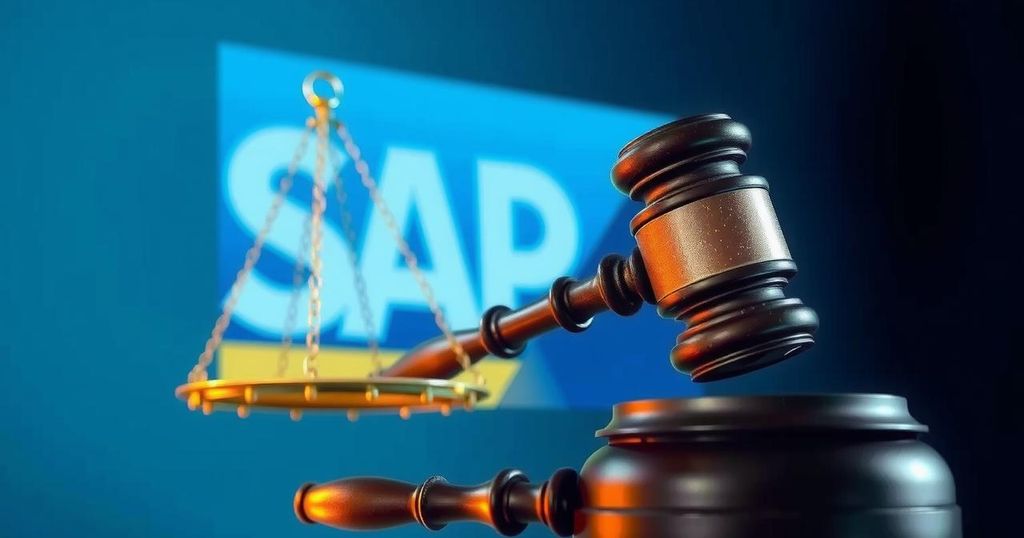SAP, the global software giant, has settled bribery charges by agreeing to pay over $220 million. The allegations involve bribery schemes intended to win contracts in various countries, including South Africa and Indonesia, which reportedly operated from December 2014 until January 2022. The corporation has said it cooperated with investigators and improved its compliance policies. The settlement includes a significant criminal fine, with penalties reduced due to SAP’s cooperation.
Global software titan SAP has consented to pay over $220 million (£172 million) to resolve bribery allegations concerning dealings with government officials worldwide. Allegations assert that payments and gifts, often facilitated through external business consultants, were designed to secure contracts in countries including South Africa and Indonesia. The alleged misconduct reportedly persisted from December 2014 to January 2022. In response to the investigation, SAP stated that it has cooperated with authorities and implemented comprehensive changes to its policies. The firm emphasized its commitment to upholding ethical standards and compliance within its operations. As detailed in U.S. court documents, subsidiaries of SAP across five African nations, Azerbaijan, and Indonesia are implicated in bribery schemes that consistently breached company protocols aimed at preventing corruption. Specific allegations indicate that in South Africa, SAP paid millions to consultants with no tangible work conducted, while also financing trips to New York for government officials that included golf outings. In Indonesia, the company allegedly sponsored shopping trips and dining experiences, culminating in more direct payments. The Securities and Exchange Commission (SEC) has unveiled communications via WhatsApp revealing instructions for substantial cash distributions. SAP has a previous record of non-compliance, having faced penalties in 2016 for violating U.S. anti-bribery regulations related to activities in Panama. Allegations suggest SAP misrepresented bribes as legitimate business expenses due to a lack of effective controls against such risks. The settlement stipulates a criminal fine amounting to $118.8 million, following collaborative investigations by the Department of Justice and the SEC, with assistance from South African authorities. The severity of the penalties was mitigated due to SAP’s cooperation with investigators and its steps to discipline individuals involved in the corrupt practices.
The developments surrounding SAP highlight the persistent challenges of corporate governance and compliance within multinational enterprises. Given the vast operations of such companies across diverse regulatory environments, the potential for unethical practices, including bribery and corruption, remains a significant concern. The case against SAP underscores the importance of implementing robust compliance frameworks to deter malfeasance and foster transparency in business transactions. It also reflects the U.S. government’s broader commitment to prosecuting corruption in international business operations.
In conclusion, SAP’s agreement to pay over $220 million to settle bribery charges serves as a critical reminder of the implications of unethical corporate behavior. The settlement underscores the necessity of stringent compliance practices and the responsibility of corporations to uphold integrity in their dealings, particularly in the challenge-prone environments of global business. Given its history and recent allegations, continued scrutiny of SAP’s operations appears warranted as it navigates its commitment to ethical standards moving forward.
Original Source: www.bbc.com






